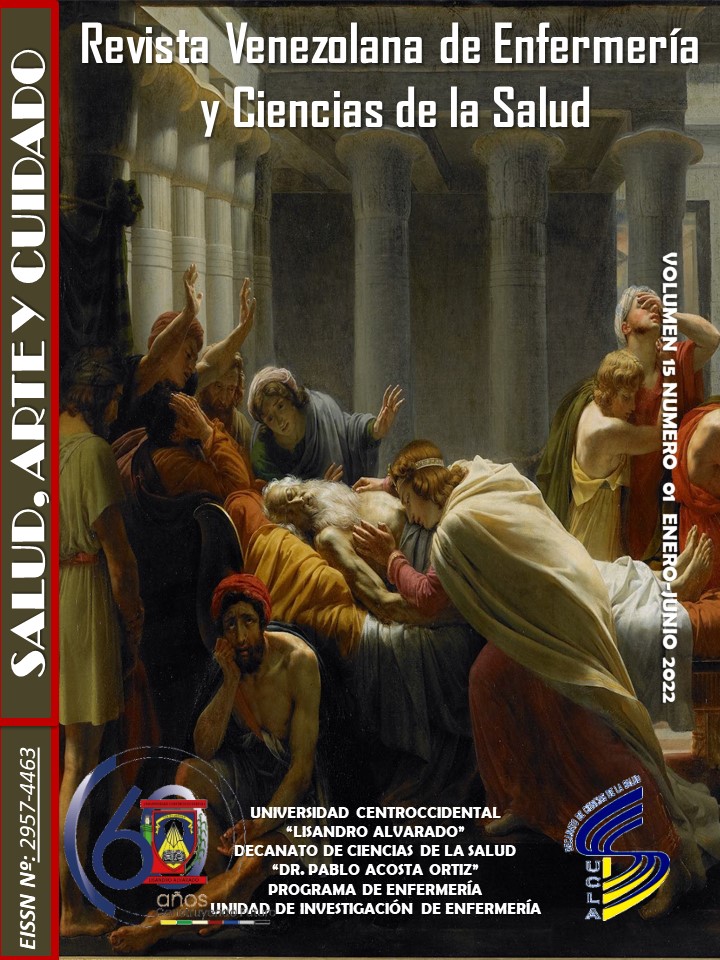Resilience and its impact on health systems in the post-pandemic context
DOI:
https://doi.org/10.5281/zenodo.7063243Keywords:
resilience, COVID19, chronic diseases, health policiesAbstract
At present, resilience as the ability to face adverse events and come out stronger from them, has had a great boom in various contexts, in this reflection the three schools of resilience were taken into account, such as the Anglo-Saxon, the European and the Latin American and the contributions that these promote in the return to normalcy in the post-pandemic context and the set of repercussions at the economic, social and even at the level of health systems, and considering the action plan of the Pan American Health Organization PAHO in 2022, aimed at building on the vision of achieving universal health in the Americas, including strengthening emergency preparedness and response capacities in all the countries of the region, with resilience as the main premise in resignifying the adversities, in order to be able to offer a timely provision of the necessary services at critical moments, taking into account Note that this capacity depends directly on health actors such as health professionals and institutions and with the inclusion of communities
Downloads
References
Comisión Económica para América Latina y el Caribe CEPAL (2021) Pandemia provoca aumento en los niveles de pobreza sin precedentes en las últimas décadas e impacta fuertemente en la desigualdad y el empleo. Disponible en: https://www.cepal.org/es/comunicados/
Organización Panamericana de la Salud OPS (2022) La recuperación y la resiliencia de los sistemas de salud deben estar en el centro de la agenda de la Cumbre de las Américas 2022: OPS Disponible en: https://www.paho.org/es/noticias
Beardslee,W. (1989) The role of self understaninng in resilient individuals: The development of a perspective. American Journal of Orthopsychiatry, 59,266-278.
Garmezy, N (1991). Resilience in children’s adaptation to negative life events and stressd environments. Pediatrics Annals, 20,459-466.
Grotberg, E.H. (2001). Nuevas tendencias en resiliencia. En A.Melillo y E.N. Suárez Ojeda (Comp.). Resiliencia. Descubriendo las propias resiliencias. Barcelona: Paidós.
Rutter, M. (1993) La “Resiliencia”: Consideraciones Conceptuales. Journal of adolescente Health. Vol 14, N° 8, Society of adolecent Medicine, New York.
Masten, A (1999) La resiliencia llega a la mayoría de edad: reflexiones sobre el pasado y perspectivas para la próxima generación de investigación. En MD Glantz & JL Johnson (Eds.), Resiliencia y desarrollo: adaptaciones positivas a la vida (págs. 281–296). Editores académicos de Kluwer
Cyrulnik B. La resiliencia en el curso de las interacciones precoces: la adquisición de recursos internos. En: Delgado Restrepo AC. La resiliencia: Desvictimizar la víctima. Cali: RAFUE; 2002. p. 43
Richardson, G. (2002). The metatheory of resilience and resiliency. Journal of clinical Psychology, 58 (3), 307-321.
Ramírez, M. González Fuentes, N. Ruíz, A. Barneveld, H. Y Barcelata, B. (2022)."Resiliencia y Enfermedades Crónicas. Una revisión sistemática" CIENCIA ergo-sum [En línea], Volumen 30 Número 1
Published
How to Cite
Issue
Section

This work is licensed under a Creative Commons Attribution-NonCommercial-ShareAlike 4.0 International License.
Derechos del/de autor/es a partir del año de publicación
Esta obra está bajo la licencia:
Creative Commons Reconocimiento-NoComercial-CompartirIgual 4.0 Internacional (CC BY-NC-SA 4.0)
Las opiniones expresadas por los autores no necesariamente reflejan la postura del editor de la publicación ni de la UCLA. Se autoriza la reproducción total o parcial de los textos aquí publicados, siempre y cuando se cite la fuente completa y la dirección electrónica de esta revista. Los autores(as) tienen el derecho de utilizar sus artículos para cualquier propósito siempre y cuando se realice sin fines de lucro. Los autores(as) pueden publicar en internet o cualquier otro medio la versión final aprobada de su trabajo, luego que esta ha sido publicada en esta revista.







